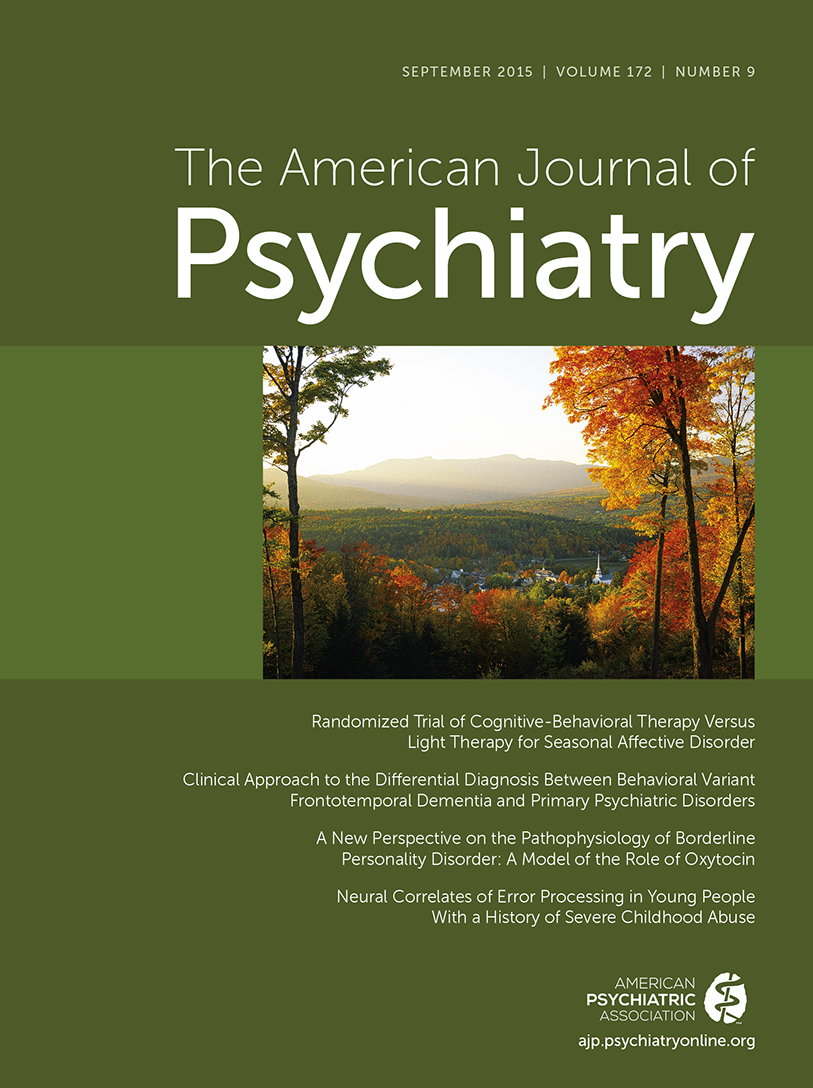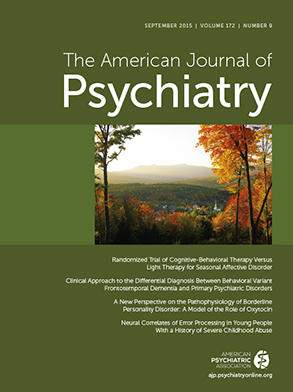Tobacco Consumption Concerns With the Use of CYP1A2 Metabolized Antidepressants
A 47-year-old Caucasian woman was referred to our psychiatric department for a current, untreated severe major depressive episode without psychotic symptoms (score on the 17-item Hamilton Depressive Rating Scale (HAM-D), 28) in a context of major depressive disorder. She had severe tobacco dependence (30 cigarettes/day for 30 years). No other disorder was detected clinically. Results of blood serum screening (including thyroid hormones, glycemia, and calcemia) and cerebral contrast MRI were normal.She was treated with 125 mg/day of imipramine (in addition to oxazepam and zopiclone). Concomitantly, she reduced her smoking spontaneously while in the hospital, a smoke-free facility, to five cigarettes/day. At discharge, she had a full response and remission with 125 mg/day of imipramine (HAM-D score, 6). Imipramine and desipramine (its predominant metabolite) trough plasma concentrations (104 ng/mL and 238 ng/mL, respectively) were within the therapeutic range (180–350 ng/mL for imipramine and desipramine together).Four weeks later, despite good compliance, she relapsed (HAM-D score, 22), requiring an increase in her imipramine dosage to 175 mg/day. But with this dosage, her trough plasma concentrations were lower than expected (imipramine, 50 ng/mL; desipramine, 96 ng/mL).No decrease in compliance and no recent co-medication could explain such low levels except a tremendous increase in the patient’s smoking, which returned to 30 cigarettes/day after discharge.Because tobacco smoking is a CYP1A2 inducer and imipramine is mainly metabolized by CYP1A2, pharmacogenetic tests were performed (CYP1A2*1F, CYP2D6*3,*4,*5,*6,x2N, CYP2C19*17) showing that the patient was a carrier of a genotype heterozygous for the CYP1A2*1F allele (AC) that is associated with increased CYP1A2 activity in smokers.
References
Information & Authors
Information
Published In
History
Authors
Competing Interests
Metrics & Citations
Metrics
Citations
Export Citations
If you have the appropriate software installed, you can download article citation data to the citation manager of your choice. Simply select your manager software from the list below and click Download.
For more information or tips please see 'Downloading to a citation manager' in the Help menu.
View Options
View options
PDF/EPUB
View PDF/EPUBLogin options
Already a subscriber? Access your subscription through your login credentials or your institution for full access to this article.
Personal login Institutional Login Open Athens loginNot a subscriber?
PsychiatryOnline subscription options offer access to the DSM-5-TR® library, books, journals, CME, and patient resources. This all-in-one virtual library provides psychiatrists and mental health professionals with key resources for diagnosis, treatment, research, and professional development.
Need more help? PsychiatryOnline Customer Service may be reached by emailing [email protected] or by calling 800-368-5777 (in the U.S.) or 703-907-7322 (outside the U.S.).

